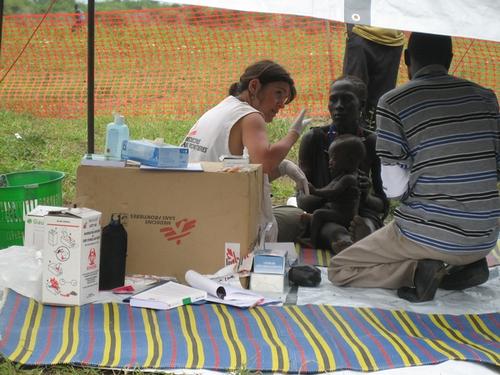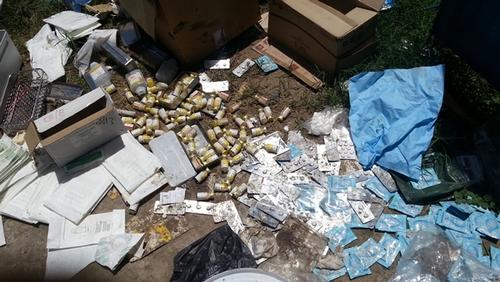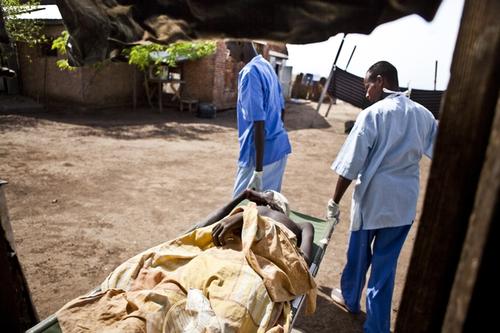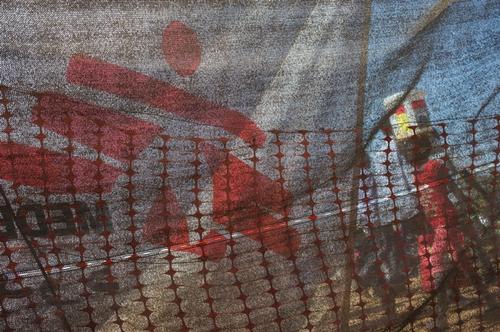An estimated 100,000 people still have dangerously inadequate access to emergency medical care, almost three weeks after the latest mass movement into the bush to escape violence in South Sudan’s southern Jonglei state. International medical humanitarian organisation Médecins Sans Frontières (MSF) has successfully reached some of these people; however, the aid response remains far from meeting the needs on the ground.
This massive population displacement, which began in May this year, stems from a combination of cyclical inter-communal clashes in the area and a concurrent violent conflict between the South Sudan Army (SPLA) and the David Yau Yau armed militia group.
MSF has reached some of those people hiding in the bush. “Since Sunday 21 July, MSF mobile clinics have performed more than 700 consultations in the bush in southern Pibor, treating mostly respiratory tract infections, malaria, and general health concerns resulting from hiding in such conditions for so long,” MSF Emergency Coordinator Katrin Kisswani said. “Many of our patients tell us they are still too afraid to return to towns despite conditions deteriorating in the bush due to the ongoing rainy season.”
Right now we are treating about 100 patients a day and we expect this to increase. Since19 July, a few – almost all women and children – have arrived with wounds that are clearly many days old.Katrin Kisswani, MSF Emergency Coordinator
Others hiding in the bush have started arriving at another MSF clinic in Gumuruk. “They arrive in Gumuruk with almost nothing,” Kisswani continued. “Right now we are treating about 100 patients a day and we expect this to increase. Since19 July, a few – almost all women and children – have arrived with wounds that are clearly many days old.” Some patients also show signs of mental trauma. The Gumuruk clinic is currently the only healthcare structure functioning in Pibor county after MSF’s hospital in Pibor town was targeted and destroyed in May.
Over the past few days more than 25,000 people have arrived in Gumuruk village, leaving their hiding places in the bush to seek assistance. To date aid agencies have been unable to cover their most basic needs.
In the days immediately following these latest inter-communal clashes, MSF also received 248 patients in the hospital of the state capital, Bor, including 129 wounded. Three others wounded elsewhere were referred to an MSF hospital in Leer, in nearby Unity State. Since 16th July, as the cycle of violence then moved northwards, MSF has received 21 wounded patients in its hospital in Lankien, eight of whom were referred onward to either Leer or Bor.
MSF is extremely concerned both for the thousands of people still hiding in the bush with such limited access to healthcare, and for those arriving in Gumuruk with almost nothing. MSF urges all parties to respect and facilitate the deployment of humanitarian aid to those in need across Jonglei State.
Patient story
A child, estimated to be 3-4 years old, came to the MSF clinic in Gumuruk with his mother.
“The boy fled with his father from our village to the south of Gumuruk. They were chased by armed men and finally the father was shot dead. The men reached the father and the child and began to beat them. They threw the child into the river and tried to drown him.”
The child was found by the mother and together they reached the MSF clinic. The child was suffering from neck and hip pain and had difficulties moving. He was diagnosed with malaria. The child is also clearly suffering from mental stress and the mother said he was having nightmares.
During the consultations the child was falling in and out of consciousness and was crying out for his father. The child was treated for malaria and fever; the medics gave him antibiotics and he will be coming back for a follow up visit after few days.
MSF has been working in Jonglei state since 1993. MSF provides primary and secondary healthcare through its health centres in Pibor, Uror and Nyirol counties, as well as emergency medical care when required in response to outbreaks of violence. In 2012, MSF provided 130,692 outpatient consultations in Jonglei state.






